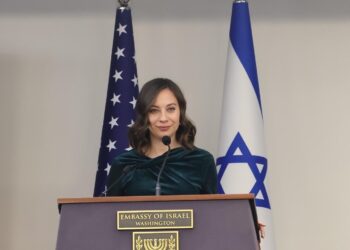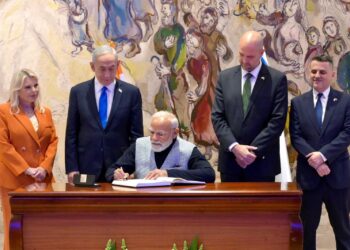Noa Argamani Named to TIME 100—but Tribute Draws Fire for Omitting Israel
Noa Argamani, the young woman whose abduction by Hamas on October 7 became one of the most searing images of that day, has been named to TIME magazine’s 2024 list of the 100 Most Influential People. A former hostage turned outspoken advocate for the release of others still held in Gaza, Argamani has become a powerful symbol of resilience, strength, and survival.
Her inclusion on the prestigious list was meant to honor her courage—but it has also sparked controversy.
The profile of Argamani, written by the former U.S. First Gentleman Douglas Emhoff, has faced mounting criticism for omitting a single mention of Israel. While Emhoff describes the trauma endured by Argamani and other Jewish victims of Hamas’s brutal terrorist attack, the absence of any reference to the Israeli context has been labeled by critics as a glaring erasure.
Here’s the full text:
The video of Noa Argamani on Oct. 7, 2023, is forever seared into my soul. She was joyfully dancing with so many others at the Nova music festival when Hamas launched its brutal terrorist attack. As she was kidnapped into Gaza on a motorcycle, her harrowing expression became a symbol of the pain and trauma Jews worldwide, myself included, continue to feel. Noa was held hostage for 245 days, a period she called “a pure hell.” Since her rescue, she has shown extraordinary courage and humanity in speaking out for the remaining hostages, including her partner Avinatan Or. My wife Kamala Harris and I stand with Noa in fighting for the release of all the hostages. We cannot give up until every one of them is home. Noa’s advocacy has illuminated Hamas’ extreme brutality, but more importantly, her bravery has embodied Jewish resilience and strength even in the worst moments. She is living proof to the world that, despite everything, “we will dance again.”
*
While Emhoff’s tribute focuses on Jewish pain and resilience, many are asking: how can one honor an Israeli hostage without acknowledging Israel at all? The omission comes amid heightened global sensitivity around how Israeli victims are represented—or left out—of international narratives.

























Discussion about this post